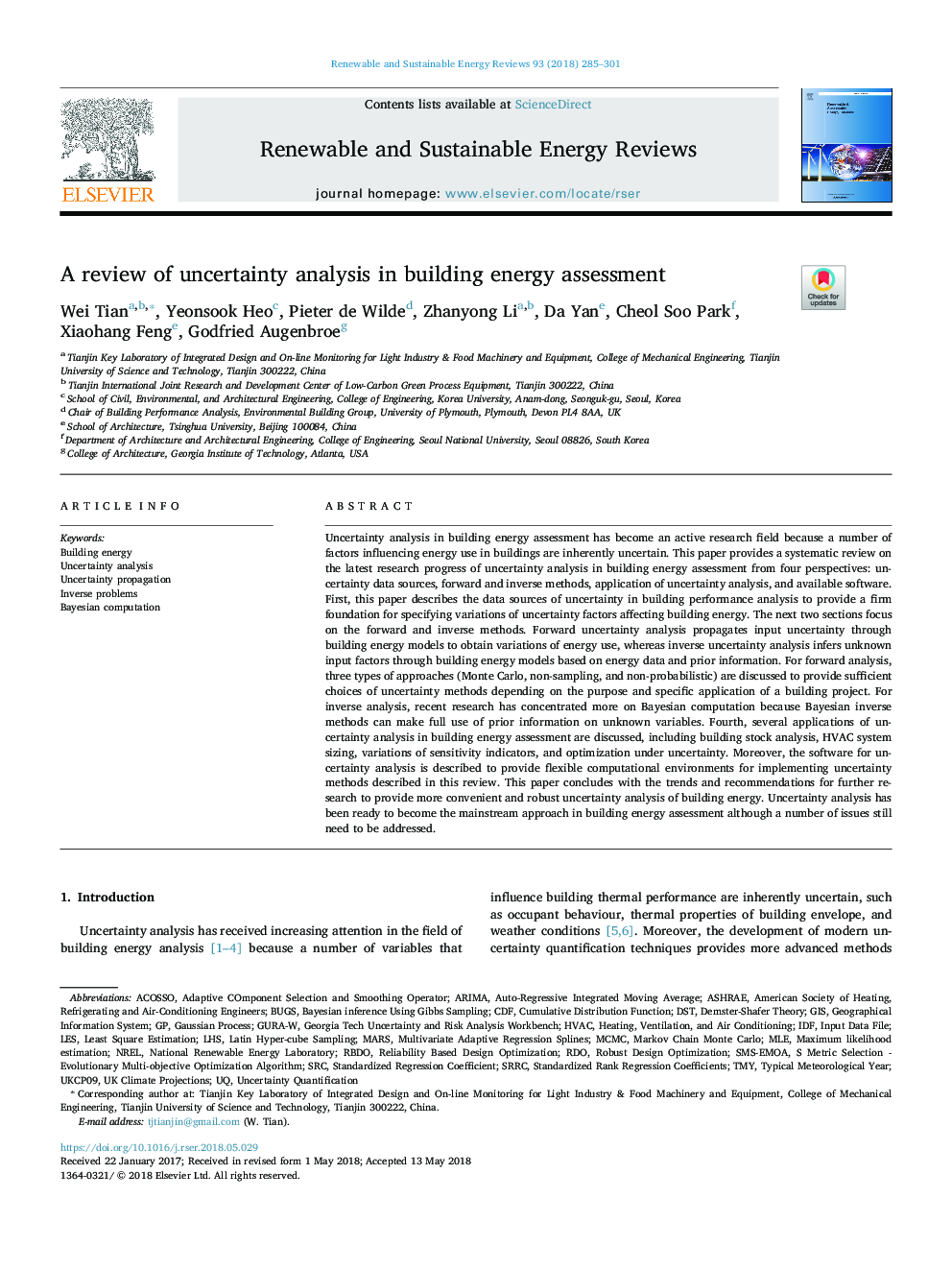| Article ID | Journal | Published Year | Pages | File Type |
|---|---|---|---|---|
| 8110700 | Renewable and Sustainable Energy Reviews | 2018 | 17 Pages |
Abstract
Uncertainty analysis in building energy assessment has become an active research field because a number of factors influencing energy use in buildings are inherently uncertain. This paper provides a systematic review on the latest research progress of uncertainty analysis in building energy assessment from four perspectives: uncertainty data sources, forward and inverse methods, application of uncertainty analysis, and available software. First, this paper describes the data sources of uncertainty in building performance analysis to provide a firm foundation for specifying variations of uncertainty factors affecting building energy. The next two sections focus on the forward and inverse methods. Forward uncertainty analysis propagates input uncertainty through building energy models to obtain variations of energy use, whereas inverse uncertainty analysis infers unknown input factors through building energy models based on energy data and prior information. For forward analysis, three types of approaches (Monte Carlo, non-sampling, and non-probabilistic) are discussed to provide sufficient choices of uncertainty methods depending on the purpose and specific application of a building project. For inverse analysis, recent research has concentrated more on Bayesian computation because Bayesian inverse methods can make full use of prior information on unknown variables. Fourth, several applications of uncertainty analysis in building energy assessment are discussed, including building stock analysis, HVAC system sizing, variations of sensitivity indicators, and optimization under uncertainty. Moreover, the software for uncertainty analysis is described to provide flexible computational environments for implementing uncertainty methods described in this review. This paper concludes with the trends and recommendations for further research to provide more convenient and robust uncertainty analysis of building energy. Uncertainty analysis has been ready to become the mainstream approach in building energy assessment although a number of issues still need to be addressed.
Keywords
UKCP09SRRCMCMCRDONRELRBDOTMYDSTSRCMLEARIMALHSIDFLESASHRAECDFNational Renewable Energy LaboratoryBugsUncertainty propagationAmerican Society of Heating, Refrigerating and Air-conditioning EngineersBuilding energyLeast square estimationMaximum likelihood estimationRobust Design OptimizationReliability based design optimizationCumulative Distribution FunctionUncertainty analysisMultivariate adaptive regression splinesHVACMarkov chain Monte CarloTypical meteorological yearGISMarsgeographical information systemGaussian processBayesian computationInverse problemsAuto-regressive integrated moving averageUncertainty quantificationheating, ventilation, and air conditioning
Related Topics
Physical Sciences and Engineering
Energy
Renewable Energy, Sustainability and the Environment
Authors
Wei Tian, Yeonsook Heo, Pieter de Wilde, Zhanyong Li, Da Yan, Cheol Soo Park, Xiaohang Feng, Godfried Augenbroe,
